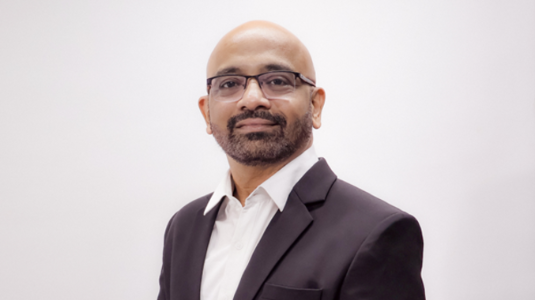Leadership today demands navigating with two compasses — logic and intuition. Balancing data-driven decisions with gut instinct helps leaders stay agile, empathetic, and effective in an uncertain world.

Prasad Shejale, Founder and CEO, LS Digital
Often as look back on my MBA days, I am surprised by how little I really understood about leadership during that period. The discussions at that time regarding whether leaders are innate or developed always seemed significant, yet my understanding was largely speculative. Fast forward to nearly three decades later, after diverse jobs and work experiences, that debate, along with many others about leadership, continues to simmer inside me. It's impractical to claim complete understanding of leadership; it's a continuous journey, which is where the concept of "dual compasses" comes to mind
During my career, especially in 19 years of entrepreneurship building teams of over 1000 people, I've navigated numerous dualities. Short-term and long-term goals, authority and empowerment, creativity and implementation, competition and collaboration, all of these are significant. However, one duality has always stood out to me the most: Logic versus Intuition.
A leader's central task is to make choices based on whatever information is on hand, and occasionally those choices contradict sheer logic. I've had numerous situations where my intuition was misplaced, and as many where sheer logic was misplaced. But being comfortable with that duality and having the guts to make decisions despite the built-in tension, is totally crucial.
Leaders in today's uncertain world must have more than one guide; they need two contrasting yet complementary "compasses": logic and intuition. This is not a matter of making either/or decisions about "leading with your head" or "leading with your heart," but rather knowing when to rely on each and having the self-discipline to challenge both.
The rational compass is our analytical map, based on data, strategic templates, and probabilities. It is the foundation of objective decision-making, strategic thinking, and effective governance. Leaders apply it to find facts, test assumptions, and hold themselves accountable through measures and processes. The compass is important to navigate complexity and keep strategic alignment.
And yet, logic is finite. Models may be founded on previous assumptions, data may trail behind accelerating realities, and human prejudice can validate what is already known and not disclose what is new. Leaders need to repeatedly challenge this prejudice, consciously seeking out alternative views to prevent "echo chambers" and defend against "bull-headed belief" in their first sense of direction.
Intuition is our "weather sense" that signals changes before they become fully visible. It's developed through experience, unconscious pattern recognition, and feeling. It's the compass that allows bold action in ambiguity, permitting leaders to accept the unknown, make intelligent risks, and build a culture of "failing fast" and ongoing improvement.
Intuition is also crucial for human connection, creating trust, empathy, and presence that results in authentic commitment rather than compliance. Self-leadership—the capacity to lead one's own internal state—is intuitive at its core, providing the basis for successful external leadership. A sense of "Ethical Compass," directed by principles such as "Do no harm" and respect, is another intuitive compass. It converts short-term sacrifices into long-term investments in trust and cooperation.
True leadership can be seen in moments when reason and intuition part ways, indicating a moment to hold back and question this inner conflict. In this "healthy tension" lies the vital self-reflection: is intuition fear-based, or is it sensing an invisible reality? Is the information complete, or is an essential human element being bypassed?
Successful leaders practice "Both/And Leadership," combining seemingly opposing attributes such as being strategic but also a conscientious executor or being technologically savvy but highly humanistic. This hybrid practice guarantees that although logic offers objective framework and data for adjusting direction, intuition guides decisions on the fly in motion and develops much-needed human connection.
The contemporary leadership terrain seldom presents direct roads. Total dependence on logic or intuition only is just not enough. Those leaders who learn to navigate both compasses, with teams that complete individual blind spots and are ready to challenge own assumptions, are best placed to handle the modern-day complexities. This harmonious dialogue of head and heart is the spirit of agile, adaptable leadership, which helps organisations to survive within uncertainty and capitalize on new chances.
As a leader, one needs to ask themselves: What dualities have you found most difficult, and ultimately, most fulfilling, to navigate in your leadership experience?
Empower your business. Get practical tips, market insights, and growth strategies delivered to your inbox
By continuing you agree to our Privacy Policy & Terms & Conditions
